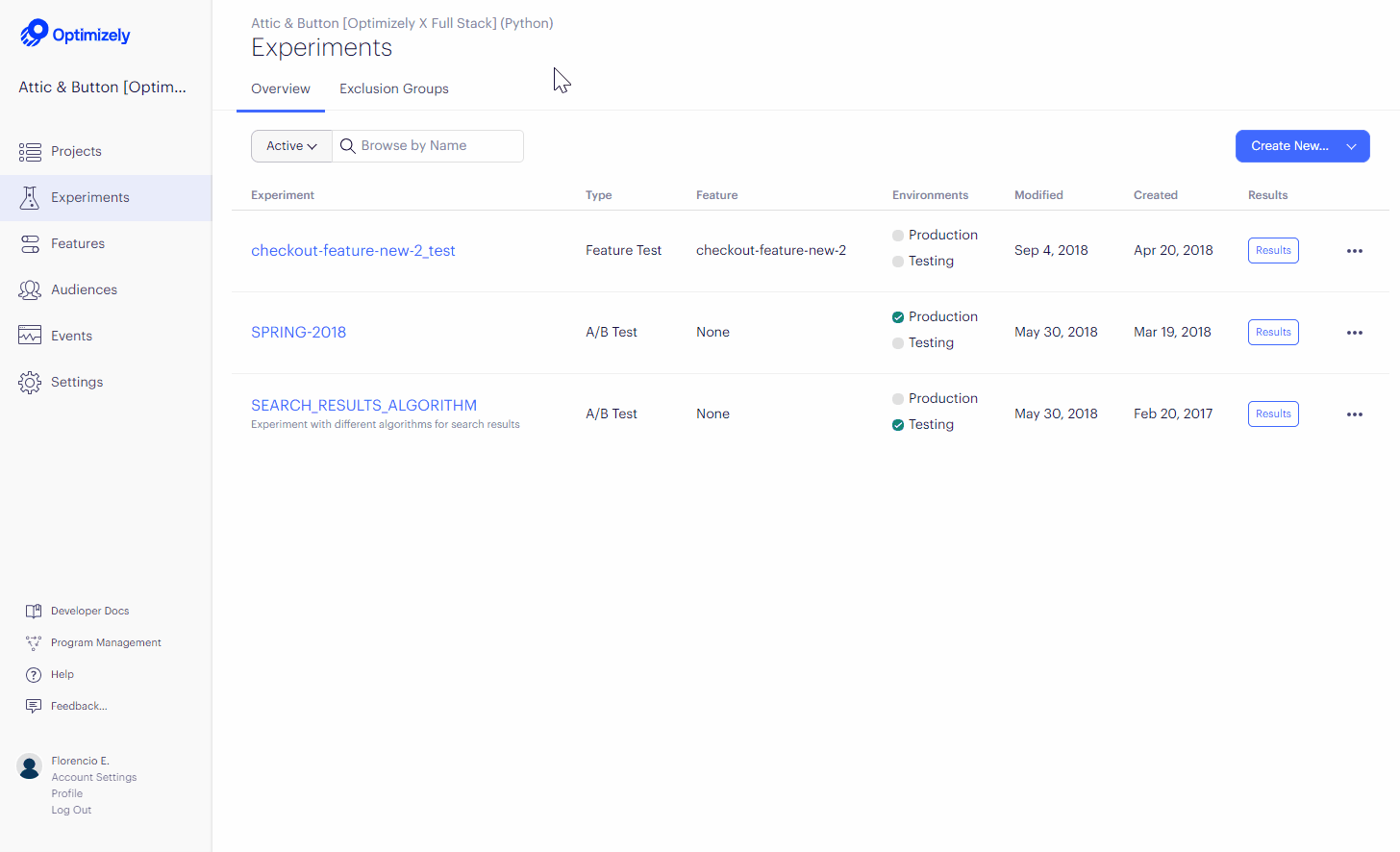Define attributes
This topic describes how to create attributes to build the audiences that see your experiments in Optimizely Full Stack.
Use attributes to build the audiences that see your experiments, and use the Attributes tab to manage all your user attributes. Attribute values are not explicitly typed in the Optimizely app. However, when you create audiences, you can choose different match criteria (comparison operations like 'greater than" or "equal to") depending on the format of the attribute value you pass. For more information, see Target audiences.
To create a new attribute:
- Navigate to Audiences > Attributes.
- Click New Custom Attribute.
- Enter a key for the attribute. For example, an attribute for visitors located in the United States might be called "US_VISITOR". You can pass attributes to the Full Stack SDK in your code, so always update your code with any changes to your keys.
- Click Save.
NoteAttribute keys must be unique:
- within your project
- across multiple projects, if you use the same user IDs across projects. (using identical attribute keys in multiple projects can cause incorrect attribution of events in the attribute-based segments on the Results page).

Value format requirements
For number and boolean audience types, the required types will vary by SDK. For Version match types, the required attribute value is a string representation of at least a Major and Minor version, with Patch version and additional release labels optional.
Updated 6 months ago
